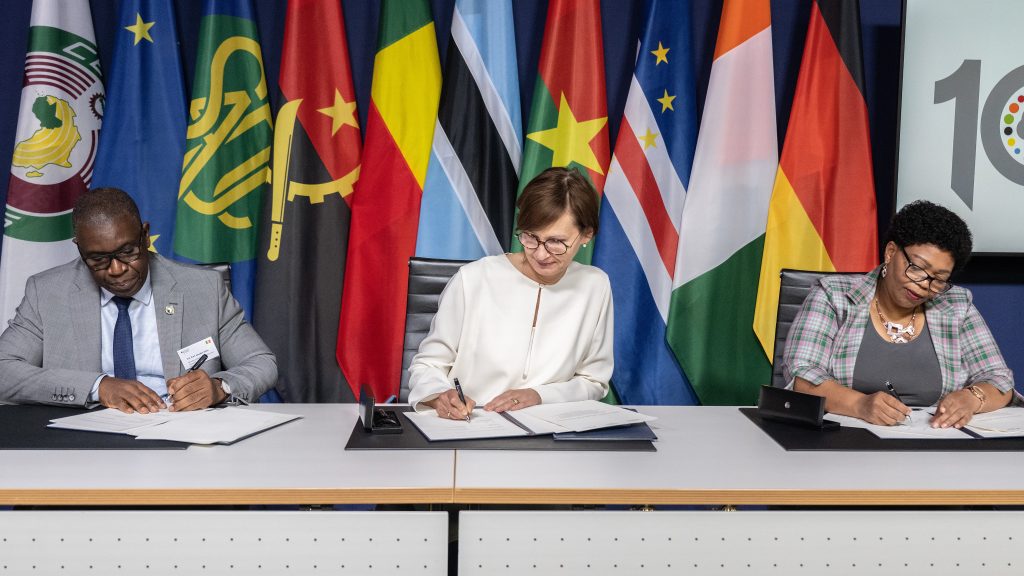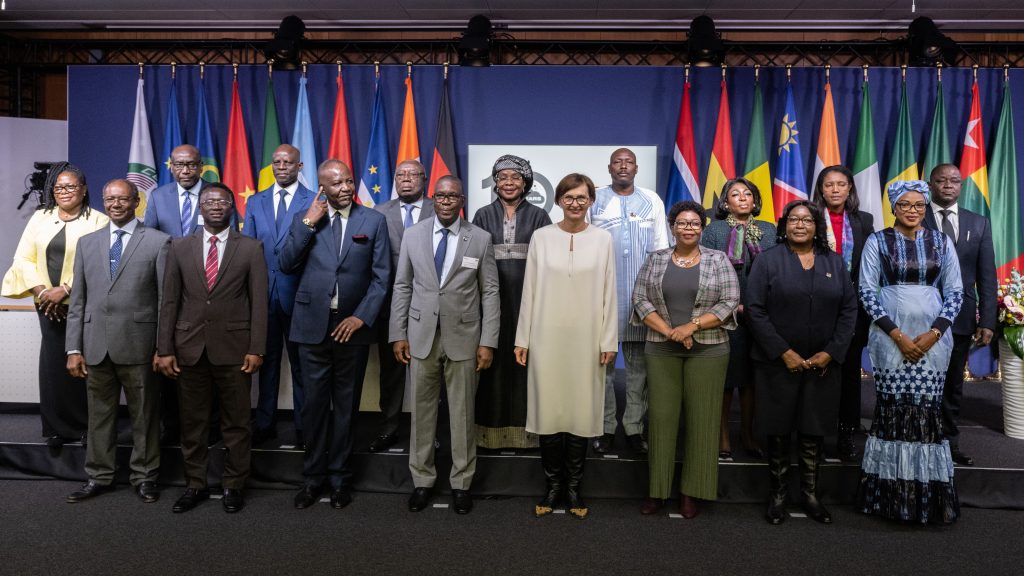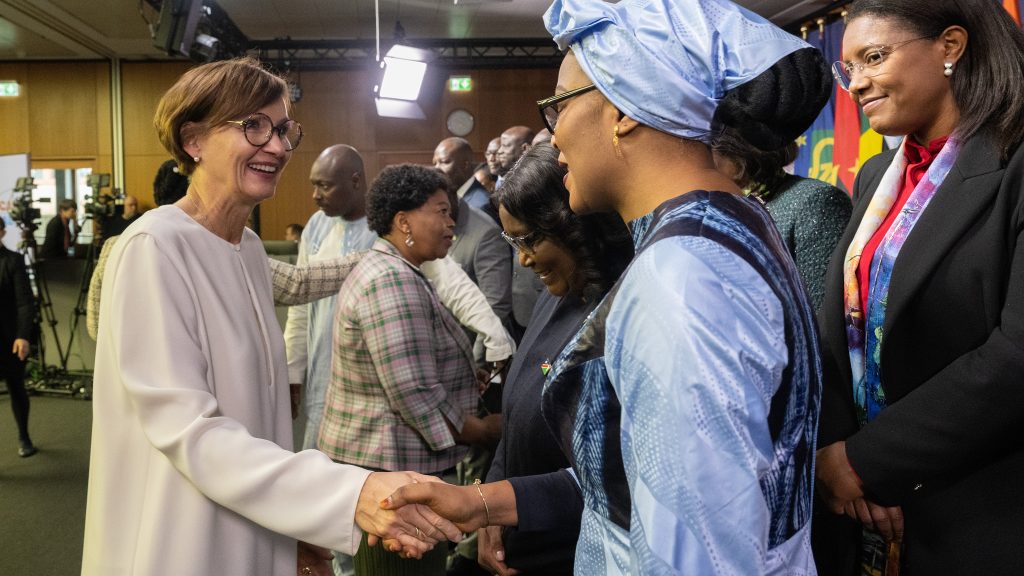
BERLIN: Southern and West African Climate Change Ministers have signed a “Joint Declaration” with the Federal Government of Germany, to further strengthen the climate and energy partnership for the Southern African Science Service Centre for Climate Change Adaptive Land Management (SASSCAL), West African Science Service Centre on Climate Change and Adapted Land Use (WASCAL) and the Federal Ministry of Education and Research, Germany (BMBF).
Among other key areas of the declaration were: to strengthen the capacities of policy and decision makers to explore, introduce and extend rational land use systems adapted to the conditions prevailing in the countries of Africa and promote implementation of policies and measures that ensure the provision of the essential ecosystem services while supporting the livelihoods of local communities in line with the Nationally Determined Contributions (NDCs), adaptation plans and development policies; to establish Green Hydrogen and renewable energy as a new strategic focus; and to employ research, development, innovation and capacity building to provide targeted support for sustainable economic and social development in ECOWAS and SADC member states.
It also stipulated that Green Hydrogen will be used as a key to achieving carbon neutrality by 2050 and a sustainable economy, through transformative actions, such as the promotion of entrepreneurship and climate incubation centres fostering the development of applied research and innovative tools and products.
The meeting was also to commemorate ten (10) years of successful climate and energy partnership between the two climate change centres and their funder, Germany. During the period under review, the BMBF established the climate competence centres of WASCAL and SASSCAL together with partner countries in West and South Africa – for more international climate research.
Speaking at the opening session of the event, the minister of BMBF, Madam Bettina Stark-Watzinger expressed her country’s commitment to scaling up the partnership built over the past decade;
“From the beginning, it was about creating structures that have a long-term impact and have existed. To date, we have already invested more than 250 million euros for this. The joint statement shows that in the future, the climate and energy partnership between WASCAL, SASSCAL and the BMBF should be further strengthened and through joint research innovative solutions should be found – such as for climate-change land use or the topic of “Green Hydrogen”. She said.
On his part, the chair of the WASCAL Ministerial Council, Dr. Amadou Keita, who is also the minister in charge of higher education and research in Mali recounted the impact stories of WASCAL, thanks to BMBF.
“Today, WASCAL can look back and proudly boast of enrolling 595 students in it’s 17 training programmes out of which 315 have been graduated. It is even more refreshing to know that the most recent programmes on green hydrogen involves all the 15 ECOWAS countries while the MSc on SPIBES is extended to central and eastern Africa, with the ambition to establish 2 graduate schools in East and Central Africa.” He spoke.
“The fight against climate change cannot be fought in silos. A stronger regional integration is needed to ensure that the battle is won. With seven years left to meet the target by the UN SDG13 on climate action, regional blocs like ECOWAS, are even more determined to ensure the execution of their Nationally Determined Contributions to the fullest”. He added.
Vice-Chairperson of the Ministerial Council of SASSCAL and Minister of Environment and Tourism of the Republic of Botswana, H.E. Phildah Kereng in her address outlined the success stories of SASSCAL within the southern African region.
“I am pleased to report here that SASSCAL has installed over 160 Automatic Weather Stations (AWS) and some of the countries have incorporated these Weather Stations into their meteorological network stations. These countries are now able to do seasonal forecasts and alert their governments about future climatic events like rainfall, air and soil temperature, humidity, wind speed and direction, barometric pressure, solar radiation, leaf wetness and other sensor data.”
Over the past 10 years WASCAL and SASSCAL have worked within their receptive sub-regions in the areas of climate change and green hydrogen, providing innovative solutions in the areas of capacity building and research , and working with strategic stakeholders to create a common ground to fight climate change and promote clean and efficient energy. Th Federal Ministry of Education and Research has played a pivotal role in funding activities of these two institutions.



